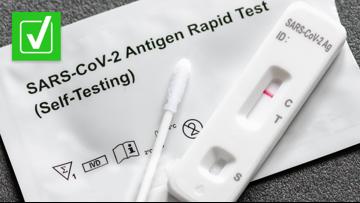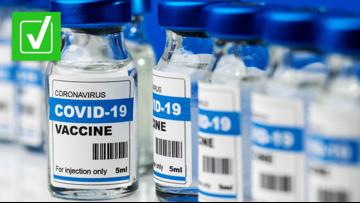Vaccine passports have been a polarizing topic of debate now that the COVID-19 vaccine is more widely available. President Biden said in March that the federal government will not develop a national “vaccine passport” for Americans to use. Still, the possibility of vaccine passports used on a state or local level, or as a tool created in the private sector, continues to draw debate.
That conversation turned to the history of vaccine mandates for travel when one Twitter user asked, “how would you feel if international travel required other vaccinations?” and others responded that some international travel already requires proof of vaccinations.
THE QUESTION
Do vaccine passports already exist for other diseases?
THE SOURCES
THE ANSWER
Yes, proof of certain vaccinations are already required in order to travel to some locations. The international vaccine certificate developed by the World Health Organization has been around for decades.
WHAT WE FOUND
The International Health Regulations is an international treaty the United States joined in 2005, according to the Kaiser Family Foundation.
This treaty is backed by the WHO’s 194 member states and was created to “provide an overarching legal framework that defines countries’ rights and obligations in handling public health events and emergencies that have the potential to cross borders.”
Under this treaty, the international vaccine certificate, called the International Certificate for Vaccination and Prophylaxis, is a yellow document the size of a smaller passport that contains vaccine information recognized internationally and that certain countries with high or increased health risks for travelers require to enter their borders.
The document dates back to 1933 with the International Sanitary Conference that later became the World Health Organization.
The U.S. accepts this certificate as a required vaccine record from people applying for an immigrant visa or for an adjustment of status.
The CDC recommends Americans traveling out of the country visit a physician to make sure they don’t need any extra shots or tests before getting on a plane, depending on the destination country. It also depends on the type of trip, as a country may have different requirements for tourists and short-term or long-term residents.
An example of this are the two main vaccines required in certain countries in Africa and Latin America: yellow fever and malaria. The WHO has a full list dating back to 2014 of countries that require visitors to get vaccinated for these diseases and request an international vaccine card before traveling.
For someone planning a trip to any of the listed countries, it is advised to check with the country’s embassy, your healthcare provider and the CDC as vaccine guidelines change and can be different for each case. Also a country could have specific locations with different health risks than the rest of the country.
So far, the COVID-19 vaccine has not been incorporated into the international vaccine certificate, but it could be in the future, according to the WHO.
"Regardless of any technology implemented in future, the COVID-19 vaccination status of international travellers should be recorded through the International Certificate for Vaccination and Prophylaxis,” the WHO says on its website. “The same format could be adapted once World Health Organization pre-qualified COVID-19 vaccines become available universally and relevant recommendations are provided under the [International Health Regulations]."
More from VERIFY: Biden's infrastructure spending plan would cover more than just roads













